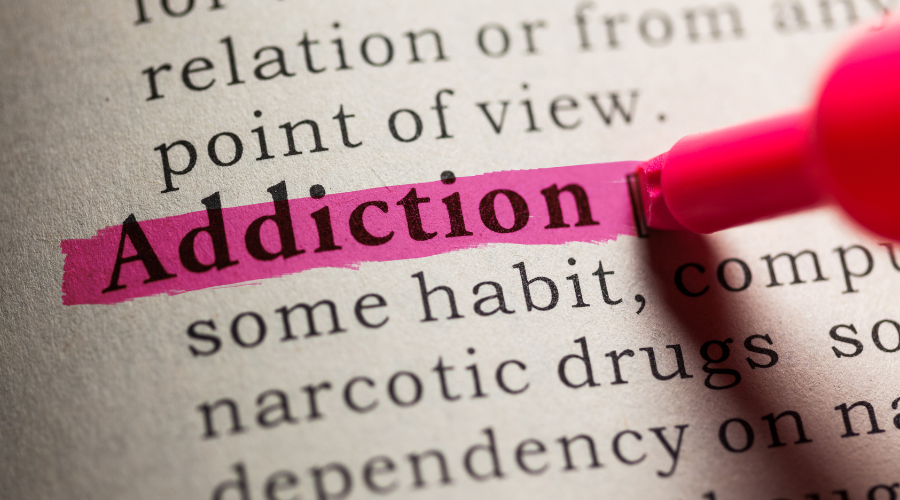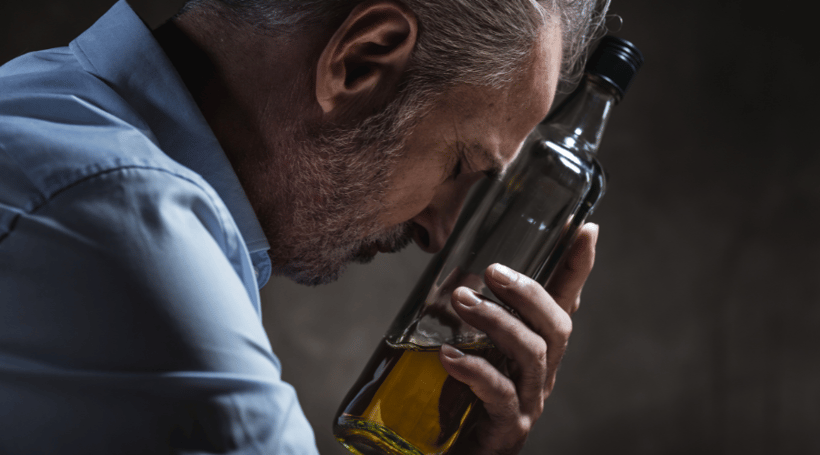The Truth About Alcohol Addiction
Alcoholism is a growing problem in today's society. Many people struggle with addiction and the...
6 min read
By: Russ Kallina on May 29, 2023

Substance use, often misused as "drug abuse," is a complex public health issue with far-reaching consequences. It extends far beyond the individual user, creating a ripple effect that impacts their families and communities and every aspect of life. From health problems like heart disease and overdose deaths to financial instability, broken relationships, and increased criminal activity, the devastation caused by substance use is undeniable.
Understanding the root causes of addiction (18 characters), how individuals transition from substance use to dependence, and its impact on everyone around them is crucial. This includes exploring the specific challenges faced by rural areas with limited access to healthcare and addiction treatment
In this blog post, we will delve into the ripple effect of drug abuse, highlighting its impact on individuals, families, and communities. We will also look at treatment options for substance abuse, how to seek professional help for addiction, and ways to support loved ones struggling with drug abuse. Lastly, we will discuss ways to break the cycle of addiction by preventing drug abuse in the family and supporting addiction recovery in the community.
Drug abuse is a widespread problem that affects not only the individual but also their families and communities. The negative impact of drug abuse can ripple through society, causing emotional trauma, financial strain, instability, and decreased safety. As drug abusers struggle with physical and mental health issues, their families experience emotional pain and stress, often resulting in fractured relationships.
The community also suffers from the economic burden of healthcare costs, lost productivity, and law enforcement efforts to combat drug-related crimes. It is crucial to address drug abuse as a public health issue by focusing on prevention, treatment, and recovery to break the cycle of addiction.
Substance use and addiction can have a profound impact on the individual, their family, and the community at large. Despite its negative consequences, drug abusers continue to seek and use drugs compulsively.
Addiction is a chronic disease that affects the brain's reward system, causing changes in behavior and physical health. Individuals with addiction may experience financial strain, legal issues, relationship problems, and physical and mental health issues.
Effective treatment for drug addiction usually involves a combination of behavioral therapy, medication-assisted treatment, and support from loved ones. It is essential to take addiction seriously as a public health issue by focusing on prevention, treatment, and recovery.
Drug abuse can have a significant impact on an individual's life, affecting both their physical and mental health. Addiction to drugs like opioids, cocaine, or methamphetamine can lead to severe health problems such as heart disease, liver and kidney damage, and even death.
Mental health issues such as depression, anxiety, and paranoia are also common among drug abusers. Drug use can also cause financial strain and legal issues, affecting the individual's relationships with family members, friends, and colleagues.
Drug abuse doesn't just impact the individual but also their family members, leading to devastating effects on the family unit. Loved ones of drug abusers often experience feelings of guilt, shame, and helplessness as they try to support their loved ones through recovery.
Children of drug abusers may experience neglect, abuse, or even abandonment. Additionally, drug abuse can lead to strained relationships, financial difficulties, and emotional turmoil within families.
Drug abuse doesn't just affect the individual and their family but also has a ripple effect on the community. One of the most significant impacts of drug abuse on the community is increased crime rates. Drug-related crimes put a strain on law enforcement resources and can negatively impact public safety.
Another issue is healthcare costs, as individuals struggling with addiction may require costly medical interventions or hospitalization. Additionally, drug abuse can lead to social issues such as homelessness and unemployment, affecting not only the individual but also the wider community. Addressing these root causes of drug abuse requires community-based programs and initiatives focused on prevention, education, and support for individuals affected by addiction.

Breaking the cycle of drug abuse and addiction is a challenging but achievable goal. Seeking professional help and building a strong support system are essential to overcoming drug addiction.
Open communication with family and loved ones can provide much-needed emotional support while joining support groups or attending therapy sessions can offer additional resources for recovery.
Making positive changes in lifestyle habits such as exercise, healthy eating, and getting enough sleep can also greatly aid in recovery. Staying active and engaged in hobbies and activities can help distract from drug cravings, leading to a healthier, happier life free from addiction.
There are various treatment options available for substance abuse, and seeking professional help is crucial for overcoming addiction. Here's what treatment can offer:
Therapy: Therapy is an effective tool that helps individuals recognize and address the underlying issues leading to drug abuse. It can also help develop coping mechanisms to manage stress, triggers, and cravings.
Medication-Assisted Treatment (MAT): This approach involves using medications, along with therapy, to alleviate withdrawal symptoms and cravings.
Support Groups: Groups like Narcotics Anonymous provide a community of individuals who understand the struggles of addiction and offer encouragement throughout the recovery process.
Finding the right treatment option depends on your individual needs and circumstances. Remember, professional help can also provide support for families and loved ones affected by a person's addiction. With the right resources and support, recovery is possible.
Recovering from drug addiction can be a challenging and complex process that requires professional help and support. Seeking professional help for addiction is a crucial step in breaking the cycle of drug abuse.
Treatment options may include therapy or counseling, medication-assisted treatment, or residential rehabilitation programs. Finding a treatment option that fits your needs and circumstances is important.
Professional help can provide support for families and loved ones who are affected by a person's addiction. Remember that recovery is possible with the right resources and support.
Supporting a loved one struggling with drug abuse can be a challenging and emotional experience. It's important to approach the situation with compassion and understanding, as addiction is a complex disease that affects not only the individual but also their family and friends.
Seeking professional help, setting boundaries, and offering emotional support can all be effective ways to support someone on their journey of recovery. Remember, it's okay to ask for help and take care of yourself as well. With patience, perseverance, and the right resources, breaking the cycle of addiction is possible.
Breaking the cycle of addiction is crucial for both individuals and their families. Addiction has far-reaching consequences, but seeking professional help and support can provide hope and healing.
Understanding addiction as a disease is the first step in overcoming it, and this involves addressing underlying issues such as trauma and mental health disorders.
resources and support groups can help families cope with the effects of addiction and break the generational cycle. Remember that recovery is possible with the right resources, support, and a strong commitment to breaking the cycle.
Preventing drug abuse in the family is a complex issue that requires a multifaceted approach. Open communication and education about the dangers of drugs are essential components of prevention.
Parents should be aware of their own behaviors and set a good example for their children. Families can also seek support from community resources such as counseling and support groups. Recognizing the signs of drug abuse early on is crucial to prevent further harm to oneself and others.
Breaking the cycle of addiction requires commitment, perseverance, and a strong support system. With the right tools and resources, families can work together to prevent drug abuse and promote health and well-being.
Recognizing the signs of drug abuse early on is crucial to prevent further harm. With the right tools and resources, families can work together to promote health and well-being and prevent drug abuse.
Recovering from addiction can be a challenging, lifelong journey, and it often requires support from one's community. The benefits of community support in addiction recovery are numerous, including access to resources like counseling, support groups, and treatment programs.
By reducing stigma and promoting an understanding of addiction as a disease rather than a choice, communities can help create safe spaces for those in recovery. Additionally, education and outreach can help raise awareness about the importance of seeking professional help for addiction and encourage individuals to take that crucial first step toward recovery.

Drug abuse doesn't just affect the individual using drugs; it has far-reaching impacts on families and communities. It's important to understand the ripple effect of drug abuse and how it can lead to a cycle of addiction. Seeking professional help is crucial in overcoming drug abuse and supporting loved ones who are struggling. Breaking the cycle of addiction requires a community effort, with preventive measures in place to reduce the risk of substance abuse and support for those in recovery. Let's work together to break the cycle of addiction and create healthier communities.
Alcoholism is a growing problem in today's society. Many people struggle with addiction and the...
The opioid epidemic is a growing concern in the world today. It has affected millions of people,...
It can be difficult for someone to kick their drinking habits, no matter how destructive they may...